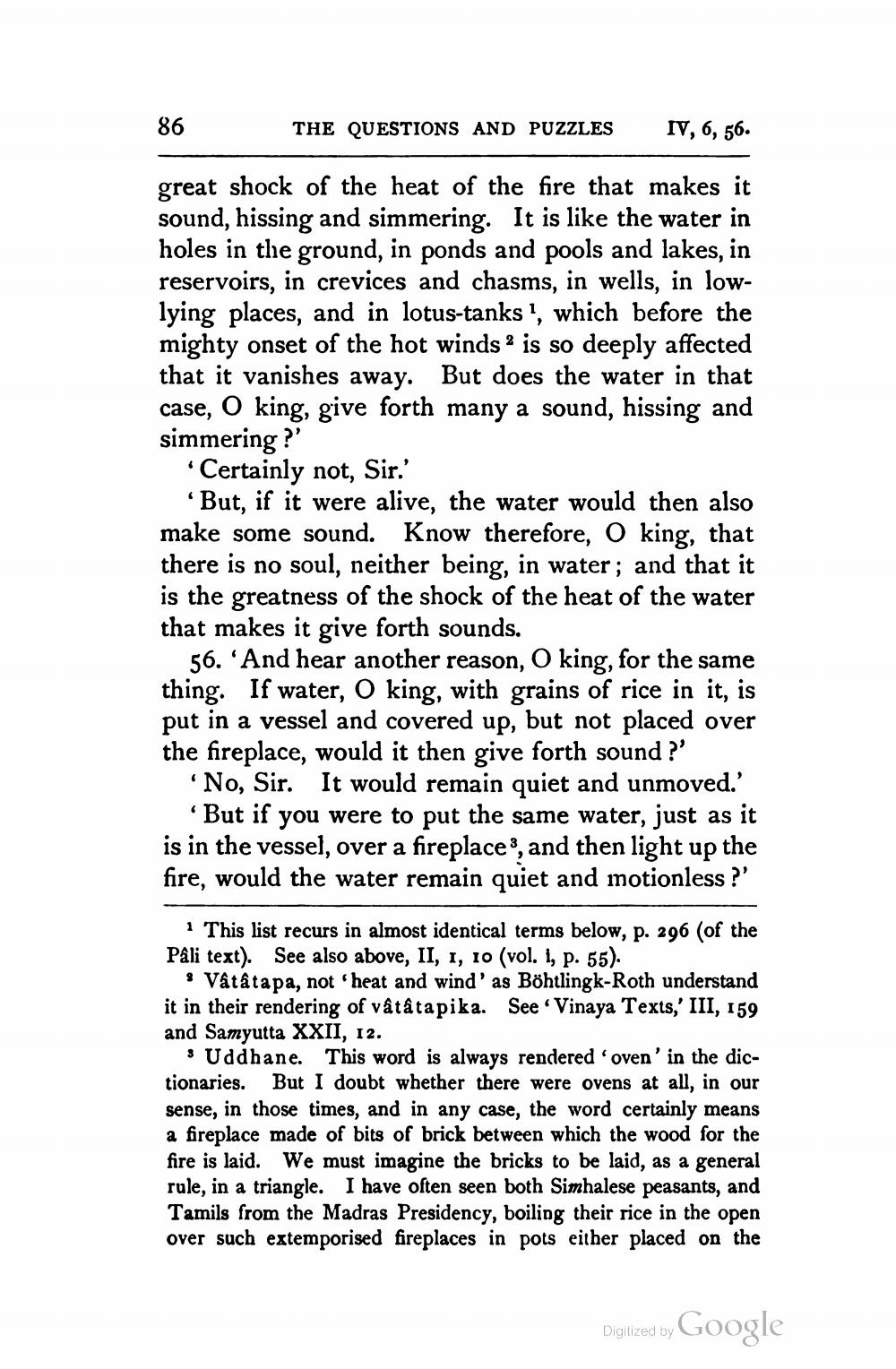________________
86
THE QUESTIONS AND PUZZLES
IV, 6, 56.
great shock of the heat of the fire that makes it sound, hissing and simmering. It is like the water in holes in the ground, in ponds and pools and lakes, in reservoirs, in crevices and chasms, in wells, in lowlying places, and in lotus-tanks !, which before the mighty onset of the hot winds 2 is so deeply affected that it vanishes away. But does the water in that case, O king, give forth many a sound, hissing and simmering?'
Certainly not, Sir.'
But, if it were alive, the water would then also make some sound. Know therefore, O king, that there is no soul, neither being, in water; and that it is the greatness of the shock of the heat of the water that makes it give forth sounds.
56. 'And hear another reason, O king, for the same thing. If water, O king, with grains of rice in it, is put in a vessel and covered up, but not placed over the fireplace, would it then give forth sound ?' 'No, Sir. It would remain quiet and unmoved.'
But if you were to put the same water, just as it is in the vessel, over a fireplaces, and then light up the fire, would the water remain quiet and motionless ?'
· This list recurs in almost identical terms below, p. 296 (of the Pali text). See also above, II, 1, 10 (vol. I, p. 55).
atatapa, not 'heat and wind' as Böhtlingk-Roth understand it in their rendering of vâtâtapika. See. Vinaya Texts,' III, 159 and Samyutta XXII, 12.
* Uddhane. This word is always rendered 'oven' in the dictionaries. But I doubt whether there were ovens at all, in our sense, in those times, and in any case, the word certainly means a fireplace made of bits of brick between which the wood for the fire is laid. We must imagine the bricks to be laid, as a general rule, in a triangle. I have often seen both Simhalese peasants, and Tamils from the Madras Presidency, boiling their rice in the open over such extemporised fireplaces in pots either placed on the
Digitized by Google
Digitized by G




